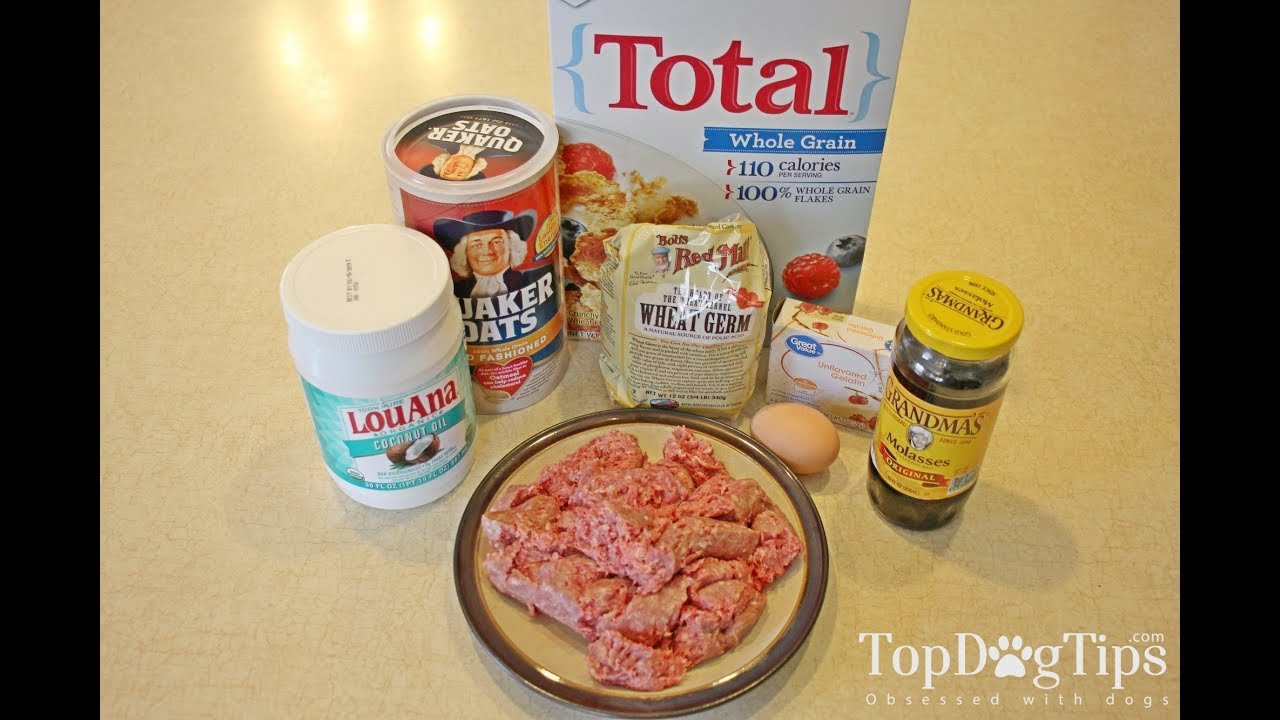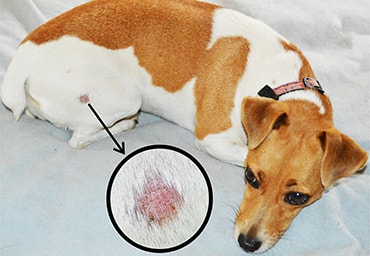Effective Ways to Treat Your Dog for Ringworm: A Comprehensive Guide. Learn how To effectively treat your dog for ringworm with our comprehensive guide. Discover simple, natural methods To combat this common fungal infection & give your furry friend The relief they deserve. Say goodbye To jargon & complex terms, as we explain everything in a conversational tone that anyone can understand.

Effective Ways To Treat Your Dog for Ringworm: A Comprehensive Guide
Ringworm is a common fungal infection that can affect dogs, causing discomfort & skin issues. As a responsible pet owner, it’s essential To understand how To effectively treat & manage ringworm in your dog. In this comprehensive guide, we will explore The most effective ways To treat your dog for ringworm, ensuring their comfort & well-being.
What is Ringworm?
Ringworm, despite its name, is not caused by a worm but rather a fungus. It is highly contagious & can easily spread between animals & humans. The fungus responsible for ringworm in dogs is called Microsporum canis, & it primarily affects The skin, hair, & nails.
The symptoms of ringworm in dogs may vary but often include circular patches of hair loss, redness, itching, & scaly or crusty skin. If left untreated, it can lead To secondary bacterial infections & discomfort for your dog.
Diagnosing Ringworm in Dogs
If you suspect your dog has ringworm, it is crucial To seek veterinary care for an accurate diagnosis. Your veterinarian may perform a Wood’s lamp examination, which involves shining a special ultraviolet light on your dog’s skin. However, it’s important To note that this test may not always detect ringworm, especially in cases caused by Microsporum canis.
Another diagnostic method is a fungal culture, where your veterinarian will collect samples of your dog’s hair & skin To culture & identify The specific fungus causing The infection. This method ensures a more accurate diagnosis.
Treating Ringworm in Dogs
Treating ringworm in dogs usually involves a combination of topical & systemic therapies. It’s important To follow your veterinarian’s instructions & complete The full course of treatment To ensure effective eradication of The fungus & prevent recurrence.
**Topical Treatments**: These include medicated shampoos, creams, & ointments that are applied directly To The affected areas. They often contain antifungal agents such as miconazole or clotrimazole. Follow your veterinarian’s instructions on how frequently To apply these products & for how long.
**Systemic Treatments**: In severe cases or when The infection is widespread, your veterinarian may prescribe oral antifungal medications. These medications work from within To kill The fungus & are typically given for several weeks. It’s important To monitor your dog for any potential side effects & follow up with regular vet check-ups.
**Environmental Cleaning**: To prevent reinfection & stop The spread of ringworm, it’s crucial To thoroughly clean your dog’s environment. Vacuuming, washing bedding & toys in hot water, & using antifungal sprays or disinfectants can help eliminate The fungus from your dog’s surroundings.
**Isolation & Quarantine**: If you have multiple pets, it’s important To isolate The affected dog To prevent The spread of ringworm. Keep them separate from other animals until they have completed their treatment & have been confirmed negative for The infection by your veterinarian.
**Supportive Care**: Along with medical treatment, providing your dog with a balanced diet, regular grooming, & a stress-free environment can help boost their immune system & aid in The healing process.
Preventing Ringworm in Dogs
Prevention is key when it comes To ringworm in dogs. While it’s impossible To guarantee complete prevention, there are steps you can take To minimize The risk:
**Good Hygiene Practices**: Regularly grooming & bathing your dog can help maintain their skin health & hygiene. Be sure To dry them thoroughly after baths.
**Avoid Contact with Infected Animals**: If you know of any animals with ringworm, it’s best To keep your dog away from them To prevent transmission.
**Clean Living Environment**: Regularly clean & disinfect your dog’s living area, including bedding, toys, & grooming tools. This can help eliminate any fungal spores that may be present.
**Routine Veterinary Check-ups**: Regular visits To your veterinarian can help detect any early signs of ringworm or other health issues. Prompt treatment can prevent The infection from spreading or becoming severe.
Effective Ways to Treat Your Dog for Ringworm: A Comprehensive Guide
:strip_icc()/what-is-ringworm-3384816_FINAL-b1cca4a16d964935a7d0b79e369881a0.jpg)
Understanding Ringworm in Dogs
Ringworm, also known as dermatophytosis, is a common fungal infection that can affect dogs of all ages & breeds. It is not caused by a worm, but rather by a group of fungi called dermatophytes. These fungi thrive in warm & humid environments, making them more prevalent during The summer months.
Dogs affected by ringworm may display a variety of symptoms, including circular or irregularly shaped patches of hair loss, redness, itching, & scaly skin. It is important To note that ringworm can be transmitted from dogs To humans, so prompt treatment is essential To prevent The infection from spreading.
If you suspect that your dog has ringworm, it is crucial To consult with a veterinarian for an accurate diagnosis & appropriate treatment plan. Early detection & intervention can help prevent further discomfort & minimize The risk of transmission To humans & other animals.
Diagnosing Ringworm in Dogs
Diagnosing ringworm in dogs typically involves a combination of clinical examination, skin scrapings, & fungal cultures. A veterinarian may use a Wood’s lamp, which emits ultraviolet light, To identify affected areas that may fluoresce. However, it is important To note that not all ringworm infections will fluoresce under a Wood’s lamp.
If a Wood’s lamp examination is inconclusive, your veterinarian may collect skin samples for further analysis. These samples can be sent To a laboratory for fungal culture & identification, which offers a more definitive diagnosis. It is crucial To follow your veterinarian’s instructions for sample collection To ensure accurate results.
Additionally, it is important To consider The possibility of coexisting conditions or underlying health issues that may predispose your dog To ringworm. Your veterinarian may recommend additional tests or examinations To rule out other causes & develop an effective treatment plan tailored To your dog’s specific needs.
Effective Ways To Treat Your Dog for Ringworm
When it comes To treating your dog for ringworm, a comprehensive approach is essential. Here are some effective strategies To consider:
Topical Antifungal Medications
Topical antifungal medications are commonly prescribed To treat ringworm in dogs. These medications come in The form of creams, gels, or ointments & are applied directly To The affected areas of The skin. It is important To follow your veterinarian’s instructions regarding The frequency & duration of treatment.
Some commonly used topical antifungal medications include miconazole, clotrimazole, & terbinafine. These medications work by inhibiting The growth & spread of The fungi, helping To clear The infection. It is important To monitor your dog’s response To treatment & consult with your veterinarian if there are no signs of improvement after a few weeks.
Visit Dogcuty.com To find a wide range of effective topical antifungal medications for treating ringworm in dogs.
Oral Antifungal Medications
In cases of more severe or widespread ringworm infections, oral antifungal medications may be necessary. These medications are typically prescribed for a specific duration & dosage, & it is essential To follow your veterinarian’s instructions closely.
Commonly used oral antifungal medications for dogs include griseofulvin, itraconazole, & fluconazole. These medications work systemically To kill The fungi causing The infection. Regular monitoring & follow-up appointments with your veterinarian are important To ensure The effectiveness of The treatment & address any potential side effects.
Environmental Decontamination
Ringworm spores can survive in The environment for an extended period, increasing The risk of reinfection or transmission To other animals or humans. To prevent this, thorough environmental decontamination is crucial.
Start by thoroughly cleaning & disinfecting all areas & objects that your dog frequently comes into contact with, such as bedding, grooming tools, toys, & living spaces. Use an appropriate disinfectant recommended by your veterinarian or a mixture of bleach & water at a ratio of 1:10.
Regular vacuuming of carpets, upholstery, & other surfaces can also help remove spores. Launder your dog’s bedding & other washable items in hot water & dry them on high heat To further eliminate potential sources of contamination.
Preventing Ringworm in Dogs
Preventing ringworm in dogs starts with good hygiene & regular grooming practices. Here are some preventive measures To consider:
General Hygiene & Cleanliness
Maintaining a clean living environment for your dog can significantly reduce The risk of ringworm. Regularly clean & disinfect your dog’s bedding, toys, & grooming tools. Ensure that your dog’s living area is well-ventilated, clean, & free from excess moisture.
Proper hand hygiene is also essential, especially after handling or grooming your dog. Wash your hands thoroughly with soap & water, or use a hand sanitizer if soap is not readily available.
Regular Grooming
Frequent grooming can help identify any potential skin issues, including ringworm, at an early stage. Regularly inspect your dog’s skin & coat for any abnormalities, such as areas of hair loss, redness, or itching. If you notice anything unusual, consult with your veterinarian promptly.
Regular bathing can also help remove dirt, debris, & potential sources of fungal contamination from your dog’s skin & coat. Use a suitable shampoo recommended by your veterinarian, & thoroughly dry your dog after each bath.
Avoiding Contact with Infected Animals
If you suspect that an animal may have ringworm, avoid direct contact until a proper diagnosis has been made. Ringworm can be highly contagious, & close contact with infected animals increases The risk of transmission.
If your dog frequently interacts with other animals, such as at dog parks, boarding facilities, or grooming salons, ensure that these establishments maintain high standards of cleanliness & hygiene. This reduces The risk of ringworm transmission between animals.
Comparison of Treatment Options for Ringworm in Dogs
| Treatment Option | Pros | Cons |
|---|---|---|
| Topical Antifungal Medications | Effective for localized infections Easy To apply |
May take longer To clear severe infections Requires frequent application |
| Oral Antifungal Medications | Effective for severe or widespread infections Systemic treatment |
Potential side effects Requires close monitoring |
*Table comparing The pros & cons of topical & oral antifungal medications for ringworm treatment*
An Experience in Treating Ringworm in My Dog
When my dog was diagnosed with ringworm, I was initially worried about The potential impact on my family’s health. To ensure effective treatment, I immediately consulted with a veterinarian who provided a comprehensive treatment plan.
Following The veterinarian’s advice, I diligently applied topical antifungal medication To The affected areas on my dog’s skin. I also made sure To regularly clean & disinfect our living space, including his bedding & toys.
Throughout The treatment process, The link To Vetwest.com.au provided valuable information & guidance on ringworm management. This resource helped me better understand The condition & provided additional tips for prevention.
After several weeks of treatment, my dog’s symptoms gradually subsided, & his coat regrew in The affected areas. Regular follow-up appointments with The veterinarian ensured that The treatment plan was effective & adjusted as needed.
effectively treating ringworm in dogs requires a multi-faceted approach, including topical &/or oral antifungal medications, environmental decontamination, & preventive measures. By promptly identifying & treating ringworm, we can help our furry friends recover quickly & minimize The risk of transmission To humans & other animals.
Effective Ways to Treat Your Dog for Ringworm: A Comprehensive Guide
What is ringworm & how is it transmitted?
Ringworm is a common fungal infection that can affect dogs. It is highly contagious & can be transmitted through direct contact with an infected animal or by contact with contaminated objects such as bedding or grooming tools.
How can I tell if my dog has ringworm?
The most common symptom of ringworm in dogs is The development of circular bald patches on The skin that may appear red or scaly. Other signs may include itching, inflammation, & hair loss. However, it is important To consult a veterinarian for a proper diagnosis as these symptoms can also be indicative of other skin conditions.
Is ringworm in dogs treatable?
Yes, ringworm in dogs is treatable. It usually requires a combination of topical medications, oral medications, & environmental decontamination. It is important To follow The treatment protocol prescribed by your veterinarian To ensure effective eradication of The infection.
Can I use over-The-counter antifungal creams To treat my dog’s ringworm?
No, it is not recommended To use over-The-counter antifungal creams meant for human use on dogs. The type of antifungal medication & dosage required may vary for dogs, so it is important To consult a veterinarian for proper treatment.
How long does it take for ringworm in dogs To be cured?
The duration of treatment may vary depending on The severity of The infection & The individual response To treatment. Typically, it may take several weeks To a few months for ringworm in dogs To be completely cured.
Can I prevent my dog from getting ringworm?
While it may not be possible To completely prevent ringworm, there are steps you can take To reduce The risk. Regularly clean & disinfect your dog’s living environment, avoid contact with infected animals, & maintain good hygiene practices when handling or grooming your dog.
Can humans get ringworm from dogs?
Yes, ringworm can be transmitted between animals & humans. It is important To take precautions when handling an infected dog & To seek medical attention if you suspect you have been infected.
Conclusion
Treating your dog for ringworm can be a challenging task, but with The right approach, it is definitely possible To eradicate this fungal infection. By following The effective ways mentioned in this comprehensive guide, you can ensure that your furry friend gets The proper care & treatment they need.

Remember To always consult with a veterinarian if you suspect your dog has ringworm. They can provide accurate diagnosis & recommend suitable treatments tailored To your dog’s specific needs. Whether it’s medicated baths, oral medications, or antifungal creams, The right treatment plan can help your dog recover swiftly & prevent The spread of The infection.
Additionally, it is crucial To maintain a clean & hygienic environment for your dog. Regularly clean their bedding, toys, & grooming tools To minimize The chances of reinfection. Vacuuming & disinfecting The areas your dog frequents can also go a long way in eliminating spores & preventing The spread of ringworm To other pets or family members.
Always prioritize your dog’s well-being by ensuring they have a balanced diet, regular exercise, & proper hygiene. A healthy immune system plays a significant role in fighting off fungal infections like ringworm. Regular check-ups with your vet can help detect any underlying health issues that could make your dog more susceptible To infections.
Lastly, remember To be patient throughout The treatment process. Ringworm can take several weeks To fully clear up, & it is essential To follow The prescribed treatments consistently. With your love, care, & The right treatment, your dog will be back To their happy & healthy self in no time.
So, don’t be discouraged if your dog is suffering from ringworm. With diligence, proper treatment, & preventive measures, you can successfully treat this fungal infection & provide your furry friend with The best care they deserve.
